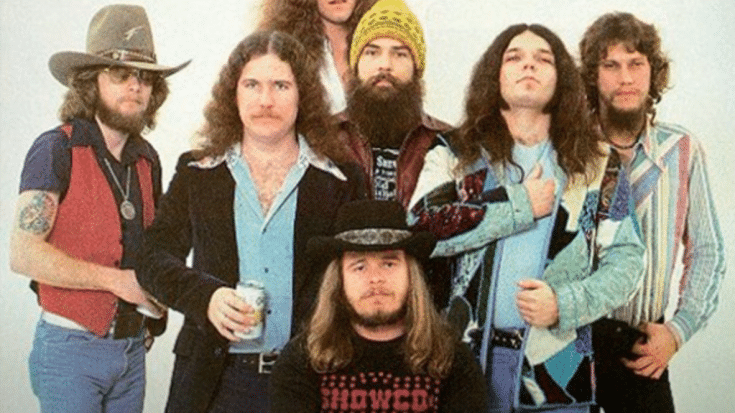10 Tragic Deaths in the Classic Rock World That Shocked Fans

via beeteep60 / YouTube
Classic rock has been defined not just by amazing music, but also by the untimely and tragic deaths of outstanding musicians. These artists left a legacy that will live on, but their sudden deaths left a hole that has been difficult to fill.
Buddy Holly, Ritchie Valens, and J.P. “The Big Bopper” Richardson
View this post on Instagram
In a twist of fate that would forever be known as “The Day the Music Died,” rock and roll pioneers Buddy Holly, Ritchie Valens, and J.P. “The Big Bopper” Richardson tragically lost their lives in a plane crash on February 3, 1959. Setting out for North Dakota, their journey was cut short by a severe storm, leading to their untimely demise. This event sent shockwaves through the music community, marking one of the first major losses of rock ‘n’ roll icons.
Jim Morrison
View this post on Instagram
Jim Morrison, the enigmatic lead singer of The Doors, found his end in Paris on July 3, 1971. Known for his poetic lyrics and charismatic stage presence, Morrison’s lifestyle of excess caught up with him, leading to his mysterious death in a bathtub at the age of 27. Questions and theories about his passing continue to swirl, making him an eternal figure of intrigue.
Cliff Burton
View this post on Instagram
Metallica, a band at the forefront of the thrash metal movement, faced a devastating blow when Cliff Burton, their bassist, died in a bus crash in Sweden on September 27, 1986. Burton’s selection of his bunk by drawing cards with a band member, only to be killed when the bus slid off the road and crashed, adds a haunting note to his legacy. He was remembered for his innovative techniques and contributions to Metallica’s early success.
Randy Rhoads
View this post on Instagram
Randy Rhoads, a guitar virtuoso known for his work with Ozzy Osbourne, met a tragic end in a plane crash on March 19, 1982. Despite his fear of flying, Rhoads was on a small joy ride that went fatally wrong. His death at just 25 years old silenced one of the most promising talents in rock guitar, leaving fans and fellow musicians to mourn what could have been.
Ronnie Van Zant, Steve Gaines, Cassie Gaines
View this post on Instagram
The music of Lynyrd Skynyrd, known for hits like “Free Bird” and “Sweet Home Alabama,” was forever changed after a plane crash on October 20, 1977. Ronnie Van Zant, Steve Gaines, and Cassie Gaines were among those killed when the band’s plane ran out of fuel and crashed into a Mississippi forest. This tragedy deeply affected the band’s trajectory and left a lasting impact on the southern rock genre.
Bon Scott
View this post on Instagram
AC/DC’s rise to fame faced a significant setback with the death of Bon Scott, their original lead singer, on February 19, 1980. After a night of heavy drinking, Scott was found dead, having choked on his own vomit. His raw vocal style and electrifying stage presence had been crucial to AC/DC’s early success, and his death marked the end of an era for the band.
Stevie Ray Vaughan
View this post on Instagram
On August 27, 1990, the music world lost one of its greatest guitarists, Stevie Ray Vaughan, in a helicopter crash after a performance in Wisconsin. Vaughan, known for his revival of the blues genre and virtuosic guitar skills, was only 35. His untimely death was a significant loss to music fans and guitar enthusiasts worldwide.
Joey Ramone
View this post on Instagram
Joey Ramone, born Jeff Hyman, was the iconic lead singer of the Ramones, a band that played a crucial role in the punk rock movement. Ramone’s death from lymphoma on April 15, 2001, ended his prolific career marked by his distinctive voice and energetic performances. New York City honored his memory by naming a street after him, securing his place as a beloved figure in rock history.
John Lennon
View this post on Instagram
John Lennon, legendary for his work with The Beatles and as a solo artist, was assassinated on December 8, 1980, by a deranged fan in front of his New York City apartment. His calls for peace and love, along with his musical genius, have made him a martyr for many, transcending his role as a musician to become a symbol of hope and resistance against violence.
Jimi Hendrix
View this post on Instagram
Considered by many to be the greatest guitarist of all time, Jimi Hendrix’s life came to a tragic end on September 18, 1970. At the age of 27, he died from asphyxia while intoxicated, a death that has fueled endless speculation and theories. Hendrix’s innovative playing and magnetic stage presence have ensured his status as a legend in the world of rock music.













